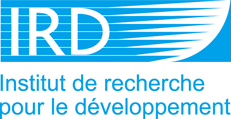Joshua Rosenthal
Joshua Rosenthal is Deputy Director of the Division of International Training and Research of the Fogarty International Center (FIC) of the National Institutes of Health. He is an ecologist with a longstanding interest in the integration of environment, public health and international development. Before coming to the NIH, Dr. Rosenthal received his Ph.D. in Plant-Insect Ecology and completed a post-doctoral fellowship in Environmental Science Policy and Management, both at the University of California, Berkeley. He subsequently accepted a AAAS Science and Diplomacy Fellowship that brought him to the Fogarty Center. He currently directs the health and environment grants portfolio of FIC, including three interagency research and capacity-building programs. The International Cooperative Biodiversity Groups combine biodiversity-based molecular discovery, bioinventory, intellectual property management and research capacity building in 15 countries around the world. The Ecology of Infectious Diseases program integrates field biology and quantitative analysis of disease dynamics with study of population, environmental change and health interventions to yield predictive tools to support disease control. The International Training in Environmental and Occupational Health program trains scientists in low and middle income countries and supports research training projects to enhance local public health research capacity and a policy relevant knowledge base. Dr. Rosenthal is currently leading an effort to develop a Trans NIH Research Agenda on the Health Effects of Global Climate Change.
He developed and managed Fogarty’s first research training program in Medical Informatics, and oversaw the development of an interagency research effort on Health, Environment and Economic Development. Dr. Rosenthal has authored a wide variety of technical, policy and popular publications, including research reports, research topic reviews, magazine articles, opinion pieces and one edited book on Biodiversity and Human Health. Dr. Rosenthal serves on advisory panels for various U.S. Government, United Nations and World Health Organization programs on zoonotic diseases, biodiversity, knowledge management, bioinformatics, genetic resources and biomedicine.
Lessons from NIH NSF Ecology of Infectious Diseases program regarding climate and health
The issue of climate change and health has come to the fore of science policy discussions in the past two years with numerous conferences, and some scientific papers and policy statements from national, such as the U.S. Centers for Disease Control and international organizations such as the World Health Organization. Only recently are we beginning to see research projects focused directly on the question of the effects of long-term climate change on infectious disease dynamics. Among the infectious scientific community there is controversy about both the nature and magnitude of changes that will occur over the coming decades in a warming world. However, over the past ten years there have been a diversity of research projects that address the relationships between disease and climate, more broadly defined. Examining some of these projects, including those that have emerged from the NIH NSF Ecology of Infectious Diseases program, can help us develop both fundamental understanding of infectious disease dynamics in relation to environmental change and conceptual clarity regarding climate and disease. Infectious disease emergence and spread is significantly influenced by many factors including contact with wildlife and domestic animals, human density, behavior and migration patterns, urbanization, public health and environmental management practices, access to care, and climate. Climate influences on disease should be examined in the context of these other influences and should be understood at multiple temporal scales. Daily weather, seasonality, inter-annual variability, and decadal changes in climate are obviously related, but pose different questions that require different approaches and will in some cases yield conflicting results regarding both the nature and magnitude of impacts of infectious disease dynamics.
If you wish to contact Joshua Rosenthal, please click here




